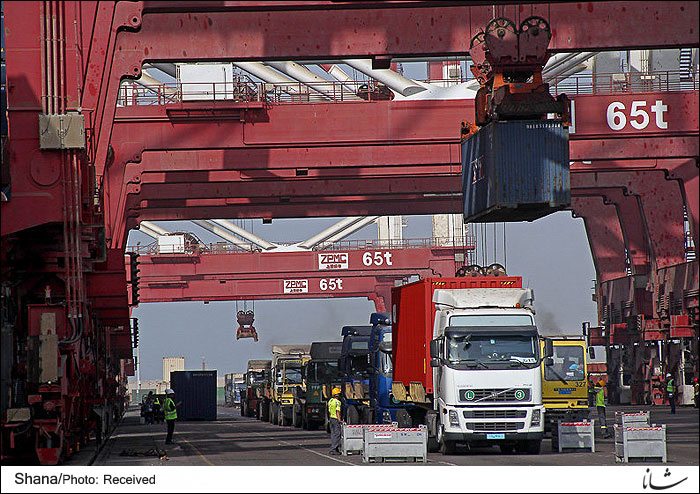 The head of Turkey’s International Transporters' Association, Fatih Sener, has stated on Monday that Iran continued to treat Turkish trucks unfairly at several border gates.
The head of Turkey’s International Transporters' Association, Fatih Sener, has stated on Monday that Iran continued to treat Turkish trucks unfairly at several border gates.
Sener's comments come after Ahmet Nurani from the Iranian Foreign Ministry announced Thursday that Tehran had suspended for a week the sealing of fuel tanks imposed on Turkish trucks since Dec.1, in order for them to make the necessary adjustments.
Tehran requires that Turkish trucks seal their fuel tanks when in Iran. The fuel prices are much lower in Iran due to state subsidies. In Turkey, a liter of diesel fuel costs $1.76 while it is only $0.09 in Iran - the fifth cheapest diesel fuel in the world after Venezuela, Syria, Saudi Arabia, and Libya, according to globalpetrolprices.com
"Iran, which has insisted on this unfair treatment, is playing the game of diplomacy. We do not understand the unrealistic statement by Iran," Sener told The Anadolu Agency, claiming Tehran was saying one thing but doing another.
Transit fees for trucks had lately become a sticking point between Turkey and its neighbor Iran. Recently, Ankara increased transit fees for Iranian trucks when Tehran hiked its own rates for Turkish trucks.
Sener thinks that the solution is simple. "Apply the same to Turkish trucks in Iran as what Turkey applies to Iranian trucks in Turkey. We want an equal treatment and to end injustice, but Iran is playing the game of diplomacy," he said.
According to Sener, Turkish trucks, with fuel tanks filled, are still waiting at the Turkmenistan-Iran border and at the Turkish border gate Gurbulak because they have not been allowed to enter Iran.
"Iran continues to refuse them with different excuses. Nothing has changed. Iran’s statement is pointless and a lie," Sener added.
Officials from the transport ministries of Turkey and Iran are meeting on Saturday to discuss the latest issues between two countries.
Turkey and Iran inked an agreement on road transportation in 1994. Iranian customs for transit of Turkish trucks are vital for Turkey’s exports to Central Asia.
By The Journal Of Turkish Weekly
The Iran Project is not responsible for the content of quoted articles.

 QR code
QR code